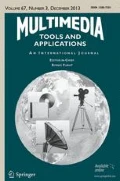Abstract
Social network not only helps people to build its internet applicable service, but also collects a large amount of user information (i.e., sensitive data), which may reveal potential privacy information by analyzing these data. At present, the differential privacy protection model gives a rigorous, quantitative representation and proof to the risk of privacy disclosure, which greatly ensures the availability of data. MBCI, a stochastic perturbation algorithm based on differential privacy, is designed. First, it uses the undirected weighted graph as the social network, and the sequence of edge weight is treated as an ordered histogram. Then, the buckets with the same count are merged into groups in the histogram and it satisfies the differential privacy by adding the noise to the weights with sensitive information. The shortest path of the network keeps unchanged by consistent reasoning of the original sequence. In order to reduce the more substantial error MBCI generated, we propose a novel algorithm - LMBCI. LMBCI first divides the original weighted social network and then constructs an algorithm under the differential privacy for each sub-network. The experimental results show that LMBCI can effectively reduce the error, improve the accuracy and retain more statistical characteristics compared with MBCI.







Similar content being viewed by others
References
Bandaru V, Bhavani SD (2011) Graph Isomorphism Detection Using Vertex Similarity Measure. Contemporary Computing-International Conference DBLP, pp. 113–122
Das S, Egecioglu Ö, Abbadi AE (2010) Anonymizing weighted social network graphs. IEEE, International Conference on Data Engineering. IEEE, pp. 904–907
Dwork C (2006) Differential Privacy. In: Proceedings of the 33rd International Conference on Automata, Languages and Programming, Venice, pp. 1–12
Dwork C, Mcsherry F, Nissim K, et al (2006) Calibrating Noise to Sensitivity in Private Data Analysis. Theory of Cryptography, Springer Berlin Heidelberg, pp. 265–284
Hay M, Rastogi V, Miklau G et al (2010) Boosting the accuracy of differentially private histograms through consistency. Proceedings of the VLDB Endowment 3(1–2):1021–1032
Kearsley AJ (2006) Projections onto Order Simplexes and Isotonic Regression. Journal of Research of the National Institute of Standards & Technology 111(2):121–125
Kulkarni AR (2014) Advanced Unsupervised Anonymization Technique in Social Networks for Privacy Preservation. International Journal of Science and Research 3(4):118–125
Lan LH, Ju SG (2015) Privacy preserving based on differential privacy for weighted social networks. J Commun 36(9):145–159
Lan LH, Ju SG (2016) Privacy Preserving Method Based on Random Projection for Weighted Social Networks. Comput Therm Sci 43(3):151–157
Li Y, Shen H (2010) Anonymizing graphs against weight-based attacks. ICDMW 2010, The 10th IEEE International Conference on Data Mining Workshops, Sydney, Australia. IEEE
Li X, Yang J, Sun Z et al (2017) Differential Privacy for Edge Weights in Social Networks. Security & Communication Networks 2017(4):1–10
Liu L, Wang J, Liu J, et al (2009) Privacy preserving in social networks against sensitive edge disclosure. In: SIAM International Conference on Data Mining
Liu SY, Zhu YH (2018) Differential privacy protection for social network edge weights. Computer Engineering and Design 39(1):44–48
Mcsherry FD (2010) Privacy integrated queries: an extensible platform for privacy-preserving data analysis. Commun ACM 53(9):89–97
Naga V, Glenn D (2019) A Social Network Analysis (SNA) Study On Data Breach Concerns Over Social Media. Proceedings of the 52nd Hawaii International Conference on System Sciences. pp. 1–8. https://scholarspace.manoa.hawaii.edu/handle/10125/60155
Nie L, Song X, Chua TS (2016) Learning from Multiple Social Networks. Synthesis Lectures on Information Concepts Retrieval & Services 8(2):118
Nie L, Zhang L, Wang M et al (2017) Learning User Attributes via Mobile Social Multimedia Analytics. ACM Trans Intell Syst Technol 8(3):1–19
Skarkala ME, Maragoudakis M, GritzalisS S et al Privacy preservation by k-anonymization of weighted social networks. Proceeding of ASONAM’12. IEEE Computer Society 2012:423–428
Xiong P, Zhu TQ, Wang XF (2014) A Survey on Differential Privacy and Applications. Chinese Journal of Computers 37(1):101–122
Xu J, Zhang Z, Xiao X et al (2013) Differentially private histogram publication. VLDB J 22(6):797–822
Zhou B, Pei J, Luk WS (2008) A brief survey on anonymization techniques for privacy preserving publishing of social network data. ACM SIGKDD Explorations Newsletter 10(2):12–22
Zou L, Chen L, Özsu MT (2009) K-Automorphism: A General Framework For Privacy Preserving Network Publication. VLDB Endowment
Acknowledgements
This work was supported by the Science and Technology Program of Guizhou Province (No. Guizhou-Science-Contract-Major-Program [2018]3001). Great appreciation goes to the editorial board and the reviewers of this paper.
Author information
Authors and Affiliations
Corresponding author
Additional information
Publisher’s note
Springer Nature remains neutral with regard to jurisdictional claims in published maps and institutional affiliations.
Rights and permissions
About this article
Cite this article
Wang, D., Long, S. Boosting the accuracy of differentially private in weighted social networks. Multimed Tools Appl 78, 34801–34817 (2019). https://doi.org/10.1007/s11042-019-08092-0
Received:
Revised:
Accepted:
Published:
Issue Date:
DOI: https://doi.org/10.1007/s11042-019-08092-0




